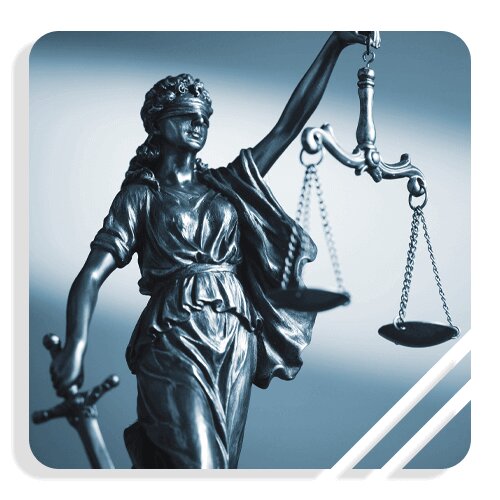Best Communications & Media Law Lawyers in İzmit
Share your needs with us, get contacted by law firms.
Free. Takes 2 min.
List of the best lawyers in İzmit, Turkey
About Communications & Media Law in İzmit, Turkey
Communications & Media Law in İzmit, Turkey, encompasses the regulations and statutes that govern the dissemination of information through various media channels, including print, broadcast, and digital media. This field of law addresses issues such as freedom of speech, censorship, defamation, intellectual property rights, and privacy. The legal framework is designed to balance the interests of the public, media entities, and individuals, ensuring responsible and ethical use of media platforms.
Why You May Need a Lawyer
There are several situations where individuals or entities might require legal assistance in Communications & Media Law:
- Defamation and Libel: If you are accused of making defamatory statements or are the victim of defamation.
- Censorship Issues: When facing the removal or restriction of content by governmental or corporate entities.
- Intellectual Property: In cases where there is a dispute over the use of copyrighted material or trademarks.
- Privacy Concerns: If your privacy rights are infringed upon by media entities.
- Media Licensing: Assistance with obtaining the necessary licenses to operate a media outlet.
- Advertising Regulations: Ensuring compliance with laws related to advertising content and practices.
Local Laws Overview
In İzmit, the legal landscape for Communications & Media Law is influenced by both national legislation and local regulations. Key aspects include:
- Press Law: Governs the responsibilities of publishers and the rights of journalists.
- Broadcast Law: Regulates radio and television broadcasting, including licensing and content restrictions.
- Internet Law: Covers online content, including social media, blogs, and digital news platforms.
- Data Protection Law: Ensures the protection of personal data and privacy online.
- Freedom of Expression: Balances the right to free speech with laws against hate speech and incitement.
Frequently Asked Questions
What is defamation under Turkish law?
Defamation is the act of damaging someone's reputation through false statements. It can be categorized as slander (spoken) or libel (written). Turkish law provides remedies for victims of defamation, including compensation for damages.
How can I ensure my online content is compliant with Turkish regulations?
Consulting with a legal expert in Communications & Media Law can help you navigate the complex regulations governing online content in Turkey. This includes understanding restrictions on hate speech, privacy laws, and content licensing requirements.
What are the penalties for violating broadcasting regulations?
Penalties can include fines, suspension of broadcasting rights, and in severe cases, revocation of a broadcasting license. Compliance with broadcasting regulations is essential to avoid these penalties.
How do I protect my intellectual property rights in media content?
Registering your intellectual property with relevant authorities and having clear usage terms can help protect your rights. Legal action can be taken against unauthorized use of copyrighted material.
Can I challenge content censorship in Turkey?
Yes, you can challenge censorship decisions through legal channels. A lawyer specializing in Communications & Media Law can help you navigate these challenges.
What are my rights regarding privacy and data protection online?
Turkish law provides strong protections for personal data. You have the right to know how your data is collected, used, and stored, and can seek legal recourse if your privacy is violated.
Do I need a license to start an online news blog in Turkey?
While traditional media outlets require licenses, online news blogs also need to comply with certain regulations and may require registration, depending on the nature of their content and operations.
What legal issues should advertisers be aware of in Turkey?
Advertisers must comply with regulations regarding truthful advertising, avoiding misleading claims, and respecting public morals and health codes. Non-compliance can lead to significant penalties.
How can I address hate speech directed at me online?
Hate speech is a criminal offense in Turkey. You can file a complaint with law enforcement authorities or seek legal assistance to take action against perpetrators.
What is the role of the Radio and Television Supreme Council (RTÜK)?
RTÜK is responsible for regulating and supervising radio and television broadcasts in Turkey. It ensures compliance with broadcasting standards and handles complaints related to broadcasting content.
Additional Resources
Here are some resources you can turn to for further information and assistance:
- Radio and Television Supreme Council (RTÜK): The regulatory body for broadcasting in Turkey.
- Press Council of Turkey: An organization that handles issues related to journalistic ethics and press freedom.
- Turkish Bar Association: Provides a directory of qualified lawyers specializing in Communications & Media Law.
- Data Protection Authority (KVKK): Regulates and oversees data protection and privacy matters.
Next Steps
If you require legal assistance in Communications & Media Law, consider the following steps:
1. Determine the specific issue you need help with and gather all relevant documentation.
2. Research and identify qualified lawyers or law firms in İzmit specializing in Communications & Media Law.
3. Arrange consultations to discuss your case and understand the potential legal strategies available.
4. Choose a lawyer who you feel comfortable with and has the expertise to handle your case effectively.
5. Follow your lawyer's advice and stay informed about the progress of your legal matter.
Lawzana helps you find the best lawyers and law firms in İzmit through a curated and pre-screened list of qualified legal professionals. Our platform offers rankings and detailed profiles of attorneys and law firms, allowing you to compare based on practice areas, including Communications & Media Law, experience, and client feedback.
Each profile includes a description of the firm's areas of practice, client reviews, team members and partners, year of establishment, spoken languages, office locations, contact information, social media presence, and any published articles or resources. Most firms on our platform speak English and are experienced in both local and international legal matters.
Get a quote from top-rated law firms in İzmit, Turkey — quickly, securely, and without unnecessary hassle.
Disclaimer:
The information provided on this page is for general informational purposes only and does not constitute legal advice. While we strive to ensure the accuracy and relevance of the content, legal information may change over time, and interpretations of the law can vary. You should always consult with a qualified legal professional for advice specific to your situation.
We disclaim all liability for actions taken or not taken based on the content of this page. If you believe any information is incorrect or outdated, please contact us, and we will review and update it where appropriate.









